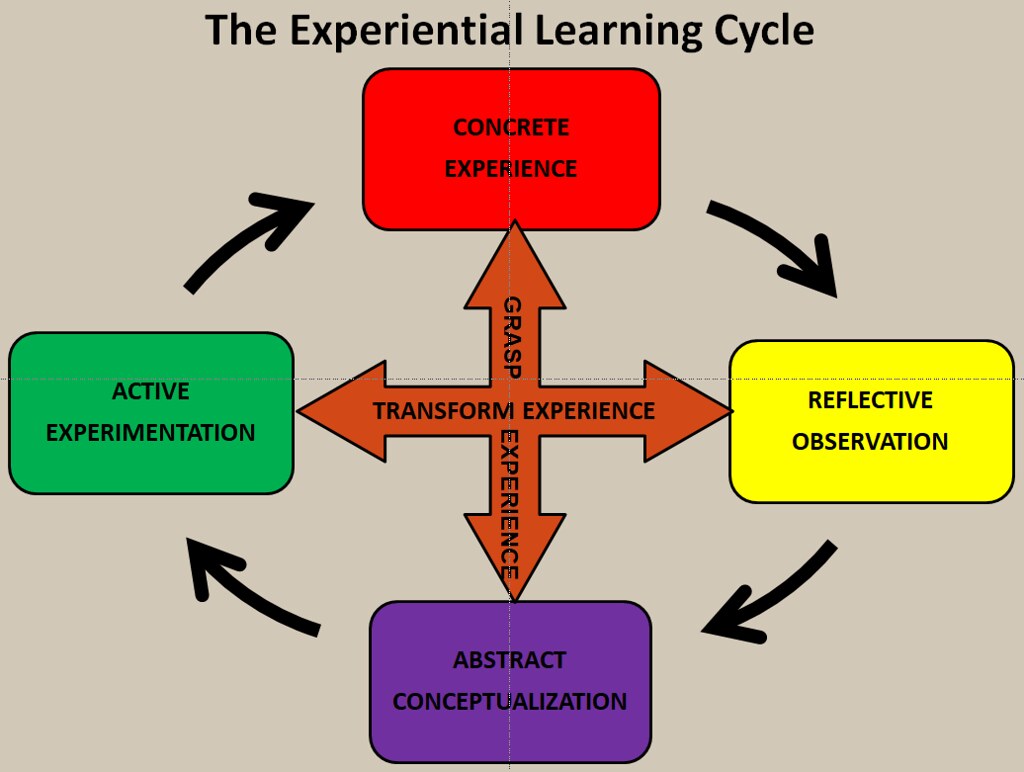1 Understanding Applied Learning
Ezenwayi Amaechi Ejiribe; Jonathan Noel; and Sara Namazi
Defining Applied & Integrative Learning: Applied learning involves the ability to apply theoretical knowledge to practical, real-world experiences; integrative learning is the process of making connections among concepts and experiences so that information and skills can be applied to novel and complex issues or challenges (source: Ithica College)
Benefits: Applied and integrative learning increases employability, provides networking opportunities, aids you in developing practical skills, and helps you adapt to the changing environment in which you may work or live.
Experiential Learning: You will also be engaging in experiential learning, a cycle of action and reflection that can yield new ideas, approaches, perspectives, and/or solutions:
Kolb’s Experiential Learning Cycle Theory

Image Source: https://www.flickr.com/photos/toddporter/44622766895
Kolb’s theory posits that effective learning occurs when a learner progresses through the above four stages, as depicted by the cycle. You might notice that two stages of the cycle are 1) concrete experience and 2) reflective observation; when you participate in applied learning, you are having a concrete experience upon which you can reflect, which in turn supports you in drawing conclusions or identifying new ideas that will shape your experiences, and be the basis of experiments or new approaches, in the future.
As public health practitioners, this theory can help with the process of application of what is being learned in the real world in a way that enables you to make the desired impact.
The rest of this guide includes tips to support you in getting the most out of your experiences with applied and integrative learning.
Below are some quick foundational tips to set you up for success:
- Review the syllabus and all supplied materials. Many course materials will deepen your understanding of applied and integrative learning and/or the topics or issues you might deal with firsthand when you are on-site.
- Attend all class sessions. As you saw above in Kolb’s learning cycle, reflection is a critical process to your learning. While suggestions are included below to structure your individual reflections and reflection processes, class sessions will also likely offer you opportunities to deepen and broaden your reflections, analyses, conclusions, and future plans for experimentation with peers.
- Attend all applied learning site engagements. Take advantage of opportunities to build relationships on-site and gain a broader variety of experiences.
- Communicate with your on-site partners. Positive relationships can support and even expand your learning on-site, and your community partners can also be valuable resources for problem-solving. Practice connecting through intentional communication – such as setting clear expectations and asking thoughtful questions.

